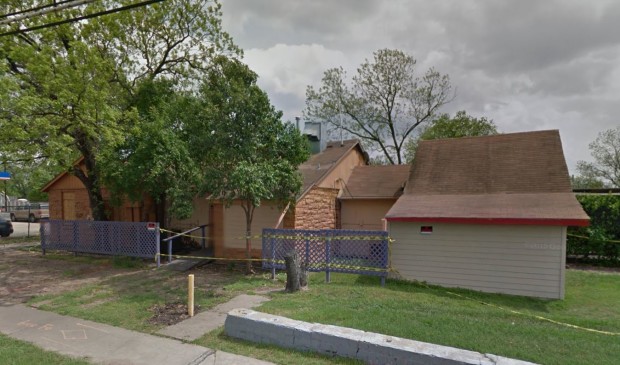Affordable housing manuever loses at City Hall
Monday, March 28, 2016 by
Elizabeth Pagano Though it earned the respect of some Planning commissioners, an attempt to leverage a site plan extension for more affordable housing on the near-east side didn’t pay off last week.
At last week’s Planning Commission meeting, Nikki Hoelter, who works in the city’s Development Services Department, detailed the appeal of an administrative extension at 2015 Manor Road, which was once home to the Vivo restaurant and is now slated to be condominiums. Hoelter explained that, because site plan applications can “take a while,” developers can request a one-time 180-day extension, which is typically granted by city staff. However, interested parties are also allowed to appeal extensions. In this case, Bo McCarver, who is president of the Blackland Community Development Corporation’s board of directors, filed the appeal.
Since the appeal was made, the review process has been on hold, though developers are granted no additional extension time for the period.
McCarver explained that he was appealing the extension in order to bring forward an issue with the affordability component of the project. He said that in 2002 his neighborhood passed a plan that asked all developers of projects with more than four units to develop 25 percent of their units as affordable at 50 percent of median family income for 20 years.
“We do that so our neighborhood will remain diverse,” said McCarver. “All of East Austin is under intense gentrification pressures. … We’re still a minority-majority neighborhood, and we’d love to keep it that way.”
McCarver said that his group has no other issue with the developer, whom he categorized as “one more termite in the forest.” He told the commission that if four of the planned 16 condo units were affordable, it would help maintain Austin’s workforce and benefit local schools. He warned that if something isn’t done, the neighborhood will have two tiers – with protected, land-trust-owned affordable housing forming one group and “upscale folks” forming the other.
“The protest on the extension is an opportunity to bring you our affordability issues,” said McCarver. “The only power we have is to come down here if it’s not going our way, to do exactly what I’m doing tonight.”
McCarver said that it was within the city’s power to impose inclusionary zoning within its Homestead Preservation Districts and requested that City Council do just that, by performing a Nexus Study. He acknowledged that this might be out of reach for this project, timing-wise, but he pushed for forward movement nonetheless. He also restated a request for a moratorium on demolition of historic structures in East Austin until a historic survey of the area has been completed.
If the developers do not include the affordable units, McCarver said, the neighborhood will protest any requested waivers or variances, but if the developers do cooperate, the neighbors “could be very nice.” He said that they had spoken with the developers in the past but that talks dropped off around the time the issue of affordable housing came up, and he expressed a hope that negotiations could resume in the future and be successful, as they had been for other projects.
Scott Burns, who was representing the owner of the property, told the commission that he was there to talk about the site plan extension.
“Obviously, gentrification in East Austin is a little bit bigger of an issue, which is probably beyond my pay scale up here today,” said Burns.
Burns told the commission that any breakdown in communication was not the result of animosity but “trying to facilitate a development that is profitable for the investors and amicable with the surrounding neighborhood.” He said he was open to further discussion but noted that the project does not require any zoning variances.
Though commissioners were sympathetic to neighborhood concerns, they weren’t able to support the denial of the appeal and acknowledged that the inclusionary zoning that McCarver desired was not yet a reality.
Commissioner Fayez Kazi said he is a huge supporter of affordable housing but didn’t see the merit of the appeal. “I hear the concern, and I hear the testimony, and I appreciate it,” he said before motioning to deny the appeal. That denial was affirmed unanimously, despite praise for the neighborhood’s goal of more affordable housing.
Commissioner Nuria Zaragoza thanked the neighborhood for its honesty. “I think it just shows the uphill battle that you’ve chosen to take on and what you’re willing to do for your neighborhood and the challenge that is retaining culture and the local people to your area. I think it is admirable,” she said, encouraging the neighborhood to get involved with CodeNEXT to let the city know what was going on in the neighborhood.
You're a community leader
And we’re honored you look to us for serious, in-depth news. You know a strong community needs local and dedicated watchdog reporting. We’re here for you and that won’t change. Now will you take the powerful next step and support our nonprofit news organization?







